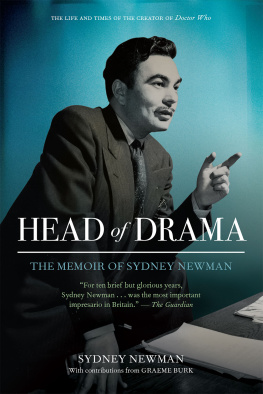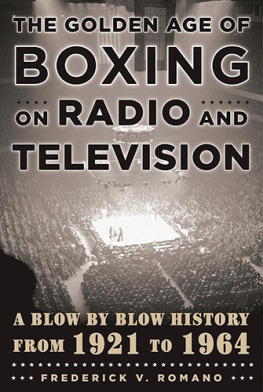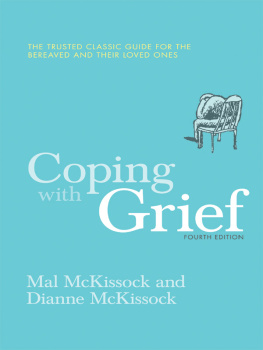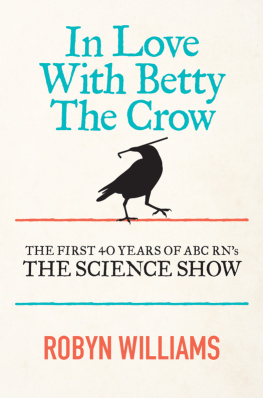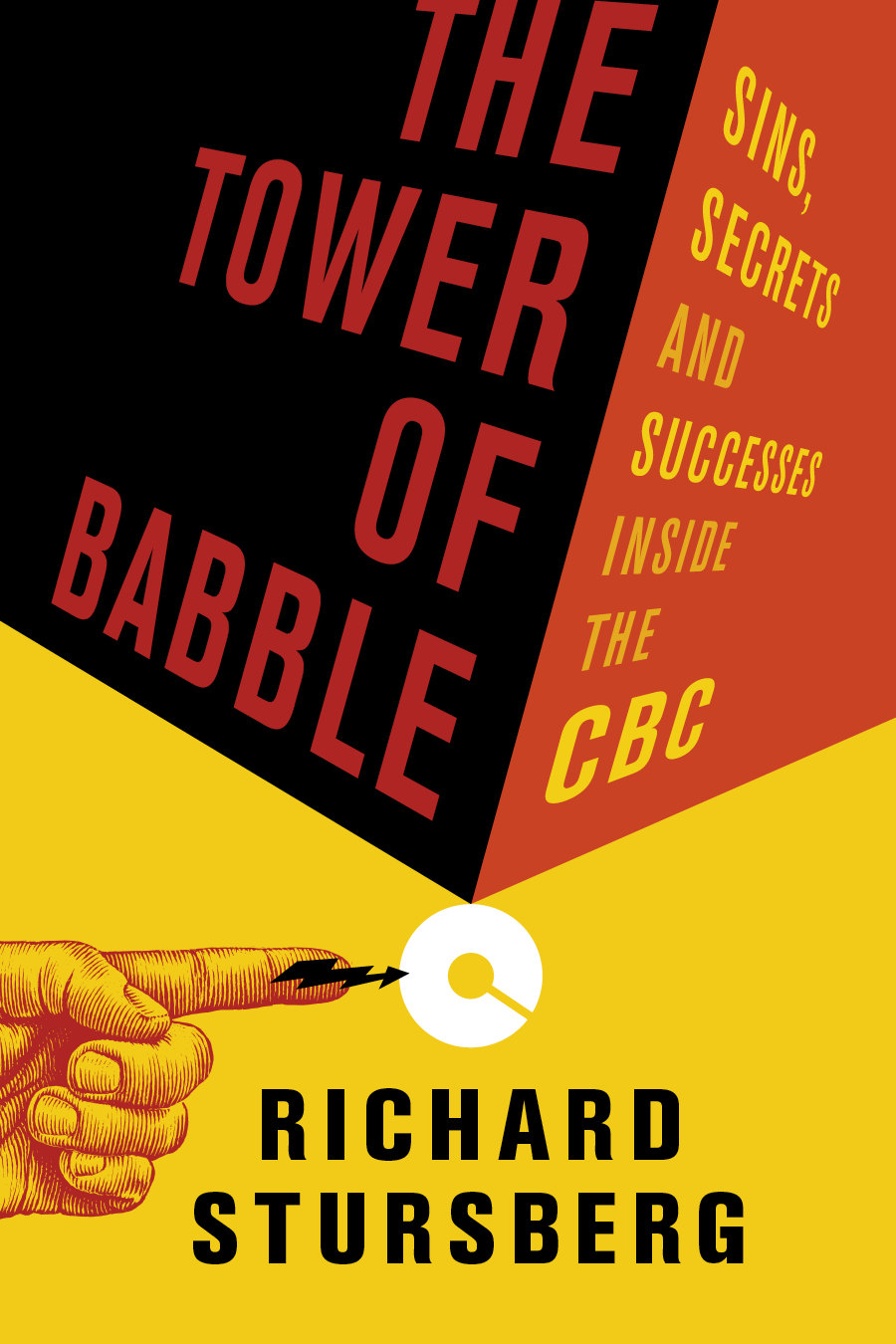For my father.
The Public of Public Broadcasting
I shoot the Hippopotamus
With bullets made of platinum,
Because if I use the leaden ones
His hide is sure to flatten em.
Hilaire Belloc, The Hippopotamus,
The Bad Childs Book of Beasts
THE ROOM WAS packed. Everyone from the broadcasting and film communities in Montreal was there. It was the luncheon talk of the Acadmie canadienne du cinma et de la tlvision, the French-Canadian equivalent of the Academy of Motion Picture Arts and Sciences. The most important producers, directors and writers were in attendance, along with various television personalities, stars and broadcasting executives. The murmur of industry talk and the clinking of ice in glasses filled the hall.
The president of the Acadmie rose to introduce me as the luncheon speaker, the guest from Toronto, the head of English services at the Canadian Broadcasting Corporation (CBC). I knew most of the people in the room, since three years earlier I had been the head of Telefilm Canada and had financed many French films. They knew me and, with the exception of a few malcontents whose films did not get financed, liked me well enough. Certainly they liked the fact that a broadcasting executive would come from Toronto and address them in French.
My topic was The Strategy for English Television at the CBC. The president finished his introduction, the room stilled and a polite hush fell over the crowd. On either side of the podium from which I was to deliver my remarks were two huge screens. The best way to explain strategy is always to start with the problem.
I began by projecting a chart showing the names of the twenty most popular television shows in English Canada. Beside each name I had placed a little flag showing its country of origin. There was nothing but American flags.
Voici le problme, I intoned.
There were cries of disbelief, shock and bewilderment; calls of non and impossible. The Quebec producers, directors and executives simply could not believe that English Canadians preferred foreign shows to their own. It must be humiliating. How do the writers and actors hold their heads up? How can people show their faces in public?
When I explained that American shows had dominated since the dawn of television in English Canada, there were fresh cries of outrage and disbelief. Strong men could be seen gasping for air; beautiful women fanned themselves in dismay. When I explained that this did not seem to bother the cultural elites in English Canada, people started passing out. One of Quebecs most distinguished screenwriters had to be revived with smelling salts.
The French television and film community was, of course, right to be scandalized. In Quebec, the most popular television shows are all Canadian. The truth is that English Canadas situation is unique in the industrialized world. Nowhere elsenot in France, Britain, Germany, the United States, Italy, Ireland, Australiado the citizens overwhelmingly prefer the television shows of a foreign country. Everywhere else, they prefer their own television shows, the shows that speak to their particular cultural sensibilities, their sense of humour, their traditions and history, and their narrative preoccupations.
If English Canada had a number one cultural challenge, this was it. The situation of the other mass media is dramatically different. English Canadians prefer their own newspapers, magazines and sports teams. They read with avidity their own novels and listen to their own music. When it comes to these other popular media, Canadians like domestic fare as least as well as, if not more than, what is available from the United States.
For its part, the Canadian Broadcasting Corporation has historically been ambivalent about the problem. Although it may seem self-evident that Canadas largest and best-financed cultural institution should take on Canadas biggest cultural challenge, the CBC has never really screwed up its courage and focused on making popular TV shows. Instead, it has focused on information programs: news, talk, documentaries, current affairs and sports. When it comes to entertainment, it has contented itself with producing dramas and comedies deemed distinctive, higher quality or edgy, rather than embracing the extraordinarily demanding work of making shows that Canadians might actually want to watch.
This failure represents a deep misunderstanding about the nature of television. Television is fundamentally about entertainment. It is the medium par excellence that people consume to be told stories, to be made to laugh, to be thrilled, frightened, moved, charmed or excited. It is a narrative medium, like the novel or the feature film. Its great strength is its immersive grip: its ability to command the emotional attention of audiences while it elaborates plots, creates characters and carries the viewer along the structure of its chosen stories.
It is true that private television networks also show documentaries, news and public affairs programs. Other than on specialty networks, however, these are almost always reserved for the nonprime time hours of the schedule. From eight oclock in the evening until eleven at night, from Sunday to Friday every week, when dinner is done and it is time to relax and watch television, the big networks offer schedules that are built almost exclusively of entertainment shows of one variety or another. They command enormous audiences, numbering in the millions and dwarfing the consumption of anything else. Only as the day winds down do the big networks move away from entertainment. Later in the evening, after eleven oclock, the news and talk shows appear.
The CBC seems never to have been comfortable with the idea that its television mandate should be to create and exhibit distinctively Canadian entertainment shows. At the height of its power and wealth, in the late 1970s and early 1980s, its prime-time schedule featured almost no Canadian drama or comedy. Instead, prime time was a mix of U.S. entertainment shows, with Canadian news, documentaries and public affairs filling up the schedule. This was surprising not simply because the CBC made little or no attempt to address English Canadas greatest cultural challenge, but also becauseeven thenthere was no shortage of Canadian news available elsewhere.
Over the 1980s and 1990s, this approach continued. At one point, the CBC became so dominated by the news that it attempted to move the major nightly newscastThe Nationalfrom its traditional prime-time slot at 10:00 PM to an even primer slot at 9:00 PM. The result was a fiasco. Ratings plummeted as Canadians declined to watch news in the middle of the evening. Regardless of this experience, the CBC continued to resist making popular Canadian entertainment shows, and continued to pursue its factual and educational approach to programming.
As a result, the CBC saw its audience share collapse over the thirty years leading up to 2004. As choice increased with the emergence of specialty channels, Canadians abandoned the Corporation in droves. While its great rival CTV also lost audience share, it lost it at half the speed of the CBC. As the decades went by, the CBC seemed incapable of changing strategy. Despite the fact that Canadians clearly preferred a different television diet to the CBCs, the Corporationthe public broadcastercontinued to ignore the publics obvious preferences. By 2004, the CBCs prime-time share was the lowest in its history.


